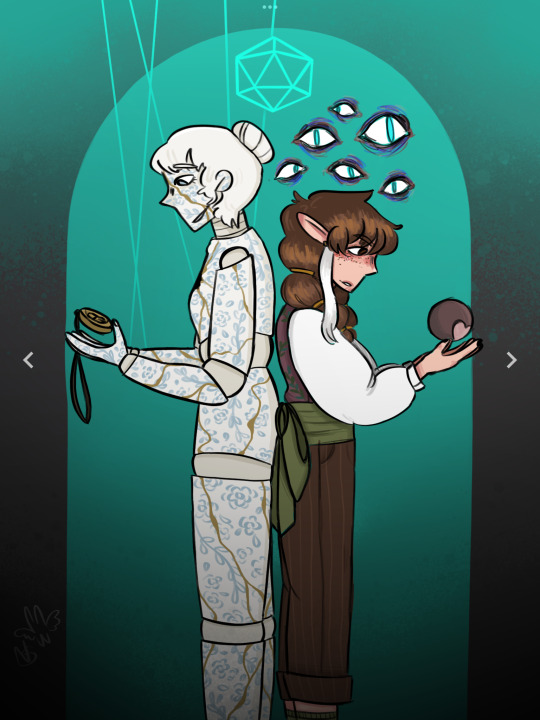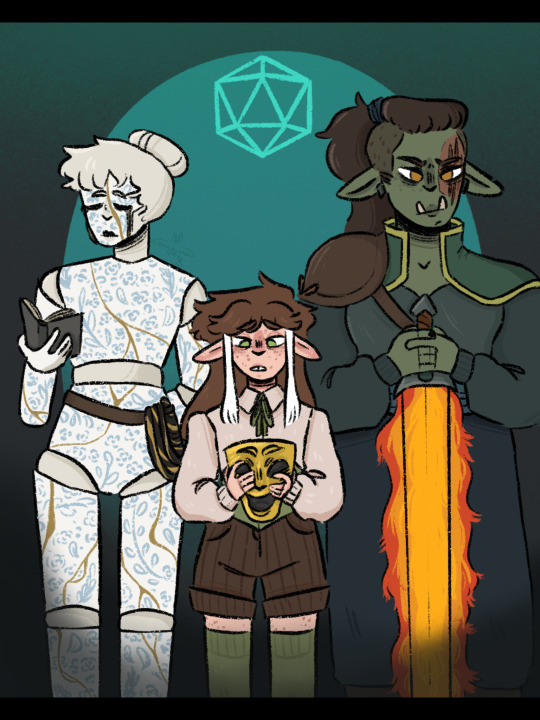#alg
Explore tagged Tumblr posts
Text
Updated 6/8/2025 - List of Comprehensible Input Chinese Resources:
Comprehensible Input Wiki - this wiki includes tons of Comprehensible Input Lessons linked for many languages. I go back to this regularly. Go to the Chinese sections for Chinese.
Vidioma.com - a person made this site to make it easy and convienient for people learning Chinese to find CI Lessons for their level of understanding. I think they were trying to make something similar to Dreaming Spanish's site to help encourage learners to start/continue by making it easy and in one place. Time watched is tracked on the local device you're using it on, there's no account sign up, and the website makes no money - it links youtube videos of youtubers that teach Chinese.
r/ALGMandarin Wiki - includes playlists made by learners of the content, sorted for beginners.
r/ALGhub Aural Resources List - includes comprehensible input lessons and learner podcasts for many languages, go to Chinese - Mandarin section.
Lazychinese.com - Su Qing made this website, her youtube channel is Lazy Chinese. Like Dreaming Spanish, it is Comprehensible Input Lessons on a website where paying a subscription will unlock more lessons. This website is still growing, the payment goes directly to Lazy Chinese and the teachers making the lessons. (As it is still growing, I recommend also checking out each teacher's youtube channels too, for example I love Xiaogua Chinese channel).
r/ALGhub What Is Automatic Language Growth? - page that explains ALG if you want to to it. (My quick summary is ALG is using only comprehensible input lessons that contain ONLY the target language, until you can use materials for native speakers, avoiding thinking about the language such as anaylzing/translating in your head/using translations and explanations, and waiting to speak and read until you feel you have a good grasp of listening skills. So 600-2000 hours depending on the language, ALG Thai courses typically recommend waiting 1000-2000 hours, Dreaming Spanish typically recommends waiting 600-1000 hours. Note: ALG is stricter than Krashen's input hypothesis that "we acquire language by having meaningful experiences we understand in the language" and therefore CI is not a synonym for ALG. ALG is comprehensible input, but comprehensible input is a much BROADER category than ALG. ALG was invented by Marvin Brown, who felt it is ONLY comprehensible experiences in the language we acquire language from, and nothing else is necessary or beneficial. Brown felt the other activities were detrimental to success. Brown also felt speaking early, or any explicit study and analysis of ANY language would damage ultimate ability in languages. This is the controversial point - as many other teaching programs that include Comprehensible Input Lessons still feel there's a place for grammar study and translations and explanations. Most learning programs for learning a language, do not worry that explicit study will damage their ultimate result, and do not care when one begins to read or speak).
Dreaming Spanish Method - includes the roadmap I'm often referencing, Dreaming Spanish Method is the ALG method, just a bit more lax. Dreaming Spanish also says to avoid explanations and translations, but to look you at them if curious then it won't hurt. Dreaming Spanish says you should wait to read and speak 600-1000 hours, but if you need to do it earlier then do, or if you will give up unless you do them early then just do them. (This is basically why I prefer going to r/dreamingspanish, their more lax approach to the ALG method means I can find more learners who are using Comprehensible Input Lessons alongside other study activities or study history, which is more compatible with my own experiences).
*personal note: think ALG's ideas are a bit extreme. I do not think explicit study, translations, speaking early, or reading early will create an insurmountable block for most people's language goals. I am not doing pure ALG. If you feel like doing pure ALG though, it will work. There's plentiful examples on r/dreamingspanish of people doing pure ALG to successfully reach B2 level, and people doing additional things that contradict ALG and successfully reaching B2 level. Dreaming Spanish's method and roadmap are a slightly more lax approach to ALG if you'd like to try it out without completely following the ALG rules, and you can find many people to connect with who also did ALG somewhat but not purist in that learning community.
My recommendations are: no matter who you are, the linked resources above are ALL useful for Practicing Extensive Listening. You'll need to practice listening to improve your listening skills, and many of these resources will have easier options for beginners and intermediate learners to practice with. These linked resources also are great ways to learn words/grammar in visual context with no translations, and learning more is always useful. If you enjoy learning from context, you may find these resources suit how you like to learn. So I think anyone studying could find these useful.
#rant#resources#chinese resources#comprehensible input#comprehensible input resources#chinese comprehensible input resources#ci lessons#alg#alg mandarin#alg method#dreaming spanish#vidioma#lazy chinese
31 notes
·
View notes
Text

1, 2, 3 and the things they represent
#bfdi#battle for dream island#bfb#object shows#algebralien#alg#xfohv#x finds out his value#one bfdi#one tpot#two bfdi#the power of two#three bfdi#three xfohv#two xfohv#one xfohv#1#2#3#my art
20 notes
·
View notes
Text






newest finished today 17/02/2024 vs the first from june 2021
#dnd#dungeons and dragons#dnd oc#dnd character#oc#original character#oc art#honey hartharn#pluto#a lucky guess#alg
5 notes
·
View notes
Text






À la Garçonne // Inverno 2025 #SPFW - São Paulo Fashion Week #SPFWn59 - 30 anos
1 note
·
View note
Text
🌞🍳 5 Healthy Breakfast Ideas to Brighten Your Mornings 🥑🍓
Start your day off right with these nutritious and delicious breakfast ideas! From smoothie bowls bursting with fruits to protein-packed omelets, these recipes will fuel your day and keep you satisfied.
#HealthyBreakfast#MorningRoutine#NutritiousEating#reels#gym#coach#dz#dzpower#alg#nutrition#tunisia#maroc#algeria#lydianutrifit#creative#pomme#avoine#healthylifestyle#healthyfood#food#streetfood#foodie#foodvideos#soulfood#foodshow#fastfood#foodhacks#foodlovers#foodinsider#cocking
1 note
·
View note
Text

Anthony Fineran, Brentford Mash ALG, 2024
0 notes
Text

Alamo Group Inc. Defies Industry Trends with Strong Fourth Quarter Revenue Growth https://csimarket.com/stocks/news.php?code=ALG&date=2024-02-23135235&utm_source=dlvr.it&utm_medium=tumblr
0 notes
Text
I like Automatic Labguage Growth schools like the Thai school, and Dreaming Spanish, because they focus on a lot of comprehensible input lessons for beginner to intermediate learners. I think comprehensible input lessons are great!
They use pictures and gestures to make a language understabdable ENTIRELY in the language, so a student can learn entirely IN their target language (also why I love Nature Method textbooks). CI lessons are apso great if you have students with a variety of native languages, for example ESL classes. At the volunteer center I worked at, we exclusively did Comprhensible Input lessons until people could have full conversations in English, because explanations in English ftom the english speaking teachers were not useful until the students knew enough English. CI lessons worked well, we had speakers of 72 languages in the classes and it ensured everyone could understand lessons.
I also more or less agree that Krashen's comprehensible input hypothesis makes sense. The CI hypothesis was that when we learn through explanations like grammar books, we learn ABOUT the language, but we don't internalize the language. We internalize the language with many experiences in the language where we understand what's going on (comprehensible input). Which if you've learned a language... yeah... you can learn how to greet someone by memorizing in a book, but it won't become automatic until you've walked into class or a grocery store and been greeted in the target language - after a few times of that comprehensible input (understanding youre being greeted) you'll automatically be able to greet using those words in the language. Apply that to everything you do in a language: you might memorize a word list, but you won't acquire it (automatically understand and be able to use those words) until you've read them in a lot of reading material, or heard them in a lot of listening material or shows, in multiple situations you understand. This makes sense based on our experiences in our native language. We can look up "melancholic" at age 8 and learn the definition, but we'll need to read it several more times or hear people say it several more times to feel confident in what it means immediately when we encounter it and to use it ourselves.
As you can see, the input hypothesis includes room for translations and explanations if you want to use them. So a textbook maker could take the input hypothesis, and create an interesting graded reader for students to read alongside it and reinforce the word lists and explanations in the textbook with LOTS of comprehensible input. Students can learn ABOUT language with explanations (which can help make more experiences in the language comprehensible), then they learn to USE/UNDERSTAND the language with comprehensible input.
Many regular "learning to read" programs took this idea and ran with it: providing lots of reading material for readers at 98% comprehension for them is a strategy to improve reading level. Because at 98% (lowest being 90-95% depending on the study) comprehension of words, its very easy to guess the meaning of the remaining words from context, and then repeated context you understand (comprehensible input) internalizes those words, and then the level of what you can read goes up. I remember learning to read in my native language and yeah that's pretty much what happened. I learned to read in French and Chinese and yeah, that's what happened in my learning to read progression.
At the early stages of learning to read, teachers provide vocabulary lists for class, and assigned reading with word definitions (look at any textbook for any subject and see history, science, math, literature reading assignment definitions etc). At the early stages of French and Chinese I looked a LOT of words up to make reading material more comprehensible, then learned words fully by reading them in contexts I understood a LOT. That's also what happened in my native language English, I looked up definitions of stuff in school, and read assignments to learn the words fully, and in my free time read gradually more and more difficult books that were all likely ~95-98% comprehensible to me. As you know more words, what's comprehensible percentage wise goes up, and you can learn MORE stuff directly from context, and repetition in context, so you no longer need to use dictionaries and explanations (unless you choose - which many people keep doing sometimes, into adulthood).
So yeah, to me Krashen's comprehensible input hypothesis is easily compatible with how we learn our native languages, and all the languages we will study. The role of explicit study to Krashen, was either to make more experiences comprehensible (so we can fully learn the words in many comprehensible experience's context), or to build an internal monitor. Our internal monitor would help us answer tests, and check our own production skills.
Which again, matches fine with how we learn our native language. We LEARN spelling, we LEARN grammar in school. We know most of it before we get to school, but learning to perfect our grammar is a 10+ year effort in school - every time a teacher marks us down and corrects our spelling or grammar in an essay. According to the comprehensible input hypothesis, we dont truly become able to "naturally" use the grammar we struggle with until we have encountered it enough in context we understand, so extensive reading helps with grammar production (and explicit study to NOTICE the grammar, and understand what it's doing if we had previously thought it meant something else). But until we can naturally acquire grammar to the degree of producing it correctly, our internal monitor (built from years of school grammar and teachers correcting our essays) kicks in and can help us identify mistakes we made in our own writing. Or speaking (although we tend to make less mistakes in speaking since we don't have to spell as we speak, or use grammar punctuation marks, and written grammar has some additional challenges that dont come up in speaking).
So krashen's hypothesis, to me, seems compatible with how we learn all languages. It also explains why many people can become B2 and C1 speakers of languages they have explicitly sudied - their explicit study made more situations in the language more comprehensible, and then all that comprehensible input in the language understanding things in context helped them acquire the language, and they became able to use it to a high level. We know many classroom learners, who use translations and grammar explanations, learn languages to the B2 and C1+ levels. We know because every year people pass tests to prove it, they get jobs or go to college where they have yo speak the language daily in a variety of situations where they must be capable in using that language, and they succeed. I went to college with tons of people who learned English in school as children, through explicit teaching methods translation and explanations, who were doing fine in college classes entirely in English, in jobs entirely in English, in going clubbing and doing the fun stuff they wanted to do, in getting apartments and buying cars and paying bills in English.
ALG is not equivalent to Krashen's hypothesis. It's based on Brown's personal experiences. He thought people should learn entirely in the target language (which hey, I agree is a nice path to take, as extensive reading works similarly and works great for people in all languages for improving language skills) so he wanted entirely Comprehensible Input Lessons for students. He wanted students to avoid speaking for 1000+ hours, to produce a more natural pronunciation and to avoid making long term pronunciation mistakes based on the mistakes one could make as a beginner. He also advised not reading for around as long, to avoid mental pronunciations that could be wrong, so waiting to read until your listening skills and grasp of pronunciation sounds was solid. So it's an extreme position - nothing but watching and listening to Comprehensible Input Lessons (or comprehensible input Crosstalk lessons) until 1000+ hours. Then start speaking, and reading, and writing, once output feels natural. Brown believed "permanent damage" results if we explicitly study things such as look at translations and explanations, or even just think about the language analytically as we learn like trying to identify what's a noun or guess translations mentally, and read before we have a good mental model of the language's sounds. He felt this permanent damage would prevent us from ever reaching native speaker like level in a language. It creates a "ceiling" where learners will keep making fossilized mistakes caused from that permanent damage. He based this on his own ability in languages he learned and how when he "analyzed" a language he studied, he never was able to achieve as good of a level in that language, and continued making certain permanent errors.
I do not agree with some key points of ALG. Since ALG is just a theory Marvin Brown, 1 language teacher, had. It's not like his theory necessarily applies to anyone but his own lived experience. And possibly the ALG Thai school he ran, and for the students who followed ALG directions without deviating (and many do additional things, don't follow ALG precisely).
I think if there is "permanent damage" most people don't need to care. Many examples exist of people who reached B2 and C1 in languages, who did many things that Brown believes result in "permanent damage." So any damage does not seem to prevent you from reaching the highest standardized level of competence in a given language, any possible damage will not prevent you from becoming able to live and work successfully in a languahe. Including Brown as an example. He learned Thai, somewhat with methods he believed later caused "permanent damage." Despite this his Thai became good enough to work AS A LANGUAGE TEACHER so a very high level of competence in Thai, and to run a Thai Teaching School. His level of language ability allowed him to work and live in Thailand successfully and easily. Any permanent damage is only a major concern for the super picky perfectionists, like Brown the language teacher who likely aspired to be perfect at it. For the average person? If their goals are to live and work and go to school in a language, then any potential "permanent damage" will not stop them from reaching their goals.
I just do not think the things ALG says to avoid, actually matter all that much. Yes, I think waiting to speak and waiting to read COULD possibly produce better pronunciation in the long run. Yes, I think learning directly IN only the target language works (after all, I know extensive reading works, I know comprehensible input works, of course CI lessons work). So I think it's fine to go the ALG route if that gets you to learn, if it's the route you can stick with. It will work, to get you to your language goals, if you stick with it. Just check reddit.com/r/dreamingspanish to see all the success. (And all the success for people who did not follow ALG to the letter, as many people on r/dreamingspanish DID keep analyzing the language, keep taking explicit instruction courses, read early etc - and also had success).
My big issue with ALG is 1. It hasn't been tested much. ALG thai school and Dreaming Spanish are the only big pools of anecdotal experiences shared. And many of the students do NOT follow ALG to the letter, so many of the experiences shared confirm if Comprehensible Input lessons entirely IN the target language work (they do) and if they can get a student to B2 fluency (which it appears they can, when combined with adequate reading, and some speaking practice).
2. ALG is REALLY AGAINST any explicit instruction at any point. I think this is weird, and deviates from how children DO learn their native language. I see no reason why after 1500-2000 hours an ALG learner can't read or listen to grammar explanations IN THE TARGET LANGUAGE. Or talk to a tutor in the target language, and have the tutor grade their essays and mention any errors. We had all of that feedback in our native language. Why wouldn't we eventually want it in the target language, once our listening skills are that of a 10 year old native speaker? Native speakers receive grammar corrections, develop that "inner monitor" and it helps them correct their own mistakes until they've extensively read enough (or just done the situation enough in contexts they understood) that they've internalized the correct grammar point to use in writing/correct spelling. ALG basically avoids explicit instruction like the plague, and suggests to learners to just read or listen more. Which yes, does comply with Krashen's input hypothesis about how they'll eventually internalize the ability to use those language elements. But native speakers get corrections from teachers which "make" them understand what mistake they were doing sooner, and understanding will then make it more comprehensible in the future, making the student recognize and pick up that grammar point/spelling SOONER.
If an ALG student is blindly misunderstanding too/two/to for 4 years, before anyone mentions they are, couldn't that also cause "permanent damage"? Aka a mistake they keep making and fossilize, because for so long they'd been assuming too and to were the same word, they'd now have to unlearn that assumption and correct it with more exposure to it in contexts they understand (comprehensible input) now that they Correctly understand the words. Now we get to the issue of ALG believes there is no undoing/fixing "permanent damage."
Basically I think it's ridiculous to avoid explicit study IN THE TARGET LANGUAGE once you can competently listen and understand as well as 10-15 year old native speakers. I think at that point, explicit study will either HELP you as much as it helps native speaker kids, or at the least it wont cause any more "damage" than native speakers must get somehow in their normal course of schooling. To learn "like native speakers do" is to include explicit study eventually, in my opinion. It's ridiculous to pretend children dont ever get explicit instruction when they get YEARS of it.
(There's also the Output hypothesis in language learning. Which goes fine with Krashen's theory. We are corrected when speaking, or even just notice the other speaker is talking differently than us, and adjust our future speech to mirror the correct output. We practice outputting, and if the other person responds and successfully understood us then we internalize that understandable output and keep doing it. If the listener fails to understand us, we adjust our output in the hopes they will understand the adjustment - and we may base our adjustment on feedback they give us. Everyone who does Dreaming Spanish who ever talks to a tutor, language exchange, or just OTHER people is doing this. Because all speaking to other people, and then adjusting to be more easily understood, is compatible with the Output hypothesis. So even with ALG being entirely against explicit explanations, there is some "feedback" all people WILL GET when speaking with others, which will improve their output abilities over time. So even ALG speakers, as far as I can tell, eventually get some of the feedback that helps native speakers improve their own output as they grow up - simply talking with others).
So yeah. ALG has not been tested much. There's very few cases of people who really stuck with ALG theory from start to finish, although I love reading the experiences of those that do. From all other successful language learners, its clear that if "permanent damage" is real (and it might not be) then it doesn't prevent any learners from becoming competent for all ordinary life purposes in a language.
I dont think for normal purposes there's a reason a learner should strictly do ALG, over any other program. Do ALG if it's the program you can get yourself to stick with, or to test its claims as that's always interesting (to me anyway). But don't be afraid to study some other way.
As far as I can tell, many routes lead to the same achievement of "can do all things you want in the language."
#rant#alg#input hypothesis#output hypothesis#comprehensible input#comprehensible input hypothesis#study methods#study method#so this was all because YET AGAIN i saw an alg learner whos 3000 hours into learning and#unwilling to check in with a tutor to get any feedback.#and people dogpiling them for wondering how the fuck to improve their grammar by reminding them NOT to read any explanations#:/ and like. yeah if they adamantly want to stick to ALG then sure avoid explanations#but perhaps their avoidance is not helping them as much as.... doing what any native speaker would do. which is get feedback#from a writing center or tutoring center or textbook.
5 notes
·
View notes
Text

I'm an lgbt ally and this is a safe space *nunchuck skills*
#bfdi#battle for dream island#algebralien#x finds out his value#xfohv#alg#bfdi zero#bfdi zro#zero xfohv#zro xfohv#lesbian#(technically)#lgbt#lgbtqia#lgbtq#pride#my art
8 notes
·
View notes
Text
omfg
tfw ur not sure if that person was a paedophile or just ✨neuro spicy✨
#that was so weird#offered to help a guy with the bus#cuz he mentioned not being able to tag on#not having a bus card#y’know#and i offered cuz we were going to roughly the same place#and he ended up sitting in the seat behind me#cuz i have#quote good vibes#apparently#and he kept thanking me#which#alg#and then he said i look very pretty (quote)#and for reference#i’m very clearly not an adult#so ummmmm#but he also mentioned that he should stop talking#cuz his mouth tends to get him in trouble?#or something?#and i’m just like#oh yeah no problem#i’ll give someone a hand if they need it#but sir#plEASE#i don’t like social interaction#sir please!!#but obviously i didn’t say any of that out loud#cuz social interaction and shit#so yeah that was fun
1 note
·
View note
Text
I'm gonna try to make a VN!
Say hello to verfolger! There's more to go, I'm excited

1 note
·
View note
Text
A lot of words to say, in short, that I’m a bad friend.
After what must’ve been some good year and a half, I checked into my Avistaz account again. I wanted to watch a Japanese movie based on a book I read earlier this month and couldn’t find it anywhere (legally) so I had to crumble to my old piracy habits. Nice movie, nice book. Some things I wasn’t a big fan of, but overall, nice watch.
That was not the only thing I did for the first time in some good year and a half this week. Just two days before I had a dream with an old internet friend of mine. I woke up and thought ‘holy shit, I should check into her’ and so I did. Had to download discord again, and after some struggle figuring out my login and password, there I was. First thing I did back in that hell of a .. whatever it is .. was leaving all my servers and deleting all the messages sent in the time I was not around. Did not concern me in the year I was away, does not concern me now. I looked for the server my friend and I had and that was gone too, before I could get my hands in it. I get it, I dipped, no one was using it, but it made me sad.
Whatever. So, I messaged that friend I dreamed with. It took maybe 15 minutes for her to reply. That was nice. Maybe I should check into all the internet friends I ghosted, huh? Logged into twitter for the first time in almost 2 years. My timeline looked like a fever dream.
I couldn’t recognize a single one of them. Different profile pictures, different interests, different names. I didn’t say anything. Took the first hour or so to go through all of their accounts trying to pick up on cues of their old selves in the haze of their new personas. Some I could link to my old friends; some I had no clue. It was a fruitless task, so at some point I gave up and just tweeted it out. Does any store have ‘sorry I disappeared for 2 years and no longer recognize any of you, how are you guys doing?’ cards?
Some reintroduced themselves to me so I could figure out the rest too. I can’t pinpoint who’s missing, but I also don’t think they’re all there. But I’m sorry to repeat myself and also to sound this cold: did not concern me in the (2) year(s) I was away, does not concern me now.
That friend, the dream one, was my closest friend for some two years. Talking to her again was natural, but it felt different. We changed a lot on the course of our friendship (we were 17 when we met and we’re 23 now) but we were together to witness those changes as it happened. With me deciding on taking an impromptu sabbatical year off of the internet, there’s a lot I missed. When we’re talking and the conversation nears a dead end, I panic. Come up with the first thing I can possibly think off. Preferably related to one of her interests so it gets her to talk and me to simply answer. I’m afraid she notices I’m having a hard time talking and thinks I’m sucking up to her or not being genuine. Maybe I am not. But I do want to talk to her. I do want to listen to her. I just am trying to figure out how.
When I was 3, or maybe 4, I befriended a girl at school. She was the sun of my solar system, and I revolved around her for almost 20 years Carefully crafted my personality so she’d like me, curated all my interests so she’d think I’m col, heck, I even convinced my parents to send me to the same super expensive high school she was going to attend once we graduated middle school. In return, I was maybe her closest friend for a while, and of course I was, because who wouldn’t want around someone whose personality is basically adoring you? She liked having her ego stroked, and I had no self-respect, so I was the ideal sidekick.
One day she said something... bad. I was sleeping over at her house. We had just started uni together (of course). I was still revolving around her clueless and careless of anything else. Then she blurted out something I would not dare to repeat and could not bother to explain the context of, but imagine something along the lines ‘but Palpatine isn’t that bad’ if you were a jedi or ‘Voldemort isn’t even that fascist!’ if you were Hermione (sorry for the Harry Potter ref in god damned 2023, couldn’t think of anything else). I couldn’t argue with her because I was so taken aback, and so surprised too. I laughed it off and said I was tired so I was gonna go sleep already. We turned off the lights. I cried myself to sleep.
You see, I was obsessed with this girl. So that was hard to deal with. I thought maybe I had misheard it. Maybe I was going insane. Maybe she didn’t mean it like that. But for the next few years, every now and then she would say something of the sorts - and it was always when it was just the two of us. One day she slipped in in front of another of our friends. When I went out with this specific girl again, just us two, she brought up the incident. So you heard that too?!
It took 4 years between that first comment until we last talked for the last time (her birthday, last year), so when the fall out came around, I was already over it. It was like saying goodbye to something already long gone. Totally over it, yeah, but just this month I cried in the middle of the night because the thought of that kid I loved so much thinking I’d grow up to leave her behind without a care for it made me feel like my heart was ripped out of my chest. She was once an extension of my own self as much as I was her shadow. Now she is nothing. I don’t miss her current self, wouldn’t change a thing about our friendship going sour. And I am well aware our relationship dynamics was never great. But, gods, I miss that little girl. Maybe as much as I miss the little girl I was.
Tomorrow is my last break day before the term starts and on the very first day of this break, I told myself I would talk with two other friends about why the actual hell things were so weird between us. Of course, I did not do that. I had been wanting too for longer than the break, but I did not need the added stress, so I waited until my classes were over. Then they were, but my friends weren’t, so I thought out of respect I should wait for them as well. Then theirs were, but stuff was heavy for them in other areas, and I did not want to bother, then....
At what point consideration stops being that and starts being excuses?
I have tomorrow still. Maybe I will text them. Maybe I won’t. Regardless of what I do, I will regret it. Life for me is none but a bunch of regrets piled up on top of the other and I’m fine with that. Or whatever.
#text#on being a bad friend#on outgrowing friendships#just a 22 years old teenage girl#IF#ALG#K#NN#NTH
0 notes
Text

Alg Gar Hiri, 2024
0 notes
Note
Okay, I'm sick and putting off sleeping, so here goes:
I'm learning Thai via the Automatic Language Growth (ALG) method. It's rad as fuck. Basically you watch videos that you that are just above your comprehension level. And by comprehension, I don't mean you understand all (or any) of the words or even any of the grammar - I mean you kinda can follow the message of the conversation.
As in, if someone asked you what the video was about you could say "Oh, they were talking about hair and haircuts". And you can do this as a complete beginner with no vocab knowledge because when you are shown pictures of a hair salon and then a teacher literally takes a pair of scissors and CUTS A HUGE CHUNK OF HER OWN HAIR OFF - you understand that they are talking about hair and hair cuts.
It's called comprehensible input. You should understand 60+% of the MESSAGE based on the gestures, facial expressions, pictures and other cues provided. But unlike the example I gave before you aren't supposed to think about or translate what you are hearing.
I'm making a huge mess of this. Let's start again.
Hi, I'm Zimmbs. I studied language acquisition and how children learn their first languages. The ALG method takes what we know about childhood language acquisition and applies to adults.
When children learn language/communication what they are doing is taking the weird sounds people make with their faces in one metaphorical hand, and then taking their lived experiences and growing world knowledge with their other metaphorical hand, and then smooshing the two together - hard. This gives (important, meaningful and functional) meaning to the face sounds.
Language is the mapping of symbols to concepts. Spoken language, written words, signing, gestures and pictorial communication are all symbols - because they are symbolic of something. They are nothing by themselves, they have no inherent meaning - we attach meaning to them. We decide they represent some concept or another.
When we acquire language we map our world knowledge to concepts and we map those concepts to speech sounds (the map is in our brain).
The theory is that the direct acquisition of language (symbol -> concept in our brain from our own lived experiences) is a robust and strong connection. The acquisition of language via translation (symbol in 2nd language -> symbol in 1st language -> concept) is a weak connection. That tagged on symbol has nothing to hold on to and will easily fall off.
On top of that, the brain HATES having gaps / things that don't make sense, and it LOVES patterns. When we tag another language on to our existing language the brain has no choice but to try and squish the new stuff into the patterns it already knows. Accents are our brain fitting the new language into the mouth patterns of our native language. The same happens with grammar.
How do we avoid this? ALG says to do what kids do -> form entirely new patterns from a blank slate (as much as possible). By not translating the new language into the already existing one we are denying the brain it's crutch of squishing things into places they don't belong. And it HAS to identify and learn the language's own inherent patterns.
This means so translating out loud or in our brains. No thinking. Just watch the videos and let the stories wash over you.
And yes, that means so subtitles when watching Thai series - I feel your pain on this one. Currently I watch shows on mute or I get an idea of the plot from Tumblr and then watch without subtitles.
The second part of ALG is the knowledge that language is built on a foundation of comprehension. Kids experience like 2000 hours of comprehensible input before they start talking. That's partly because their mouths are weird, but also because they need to establish a very solid language base in their brains (internal symbolic representations of concepts) BEFORE they can externally form the symbols themselves.
Put these two things together and you get a language acquisition approach that prioritises listening and comprehension, and the truly spontaneous production of spoken language. It takes time (sometimes a long time) for the sounds to come out of your mouth automatically without thinking or forcing it (this is referred to as the silent period). But you are much more likely to be producing symbols true to that language - rather than ones influences by the patterns of your other language, and symbols that are directly and robustly attached to your own internalised concepts.
As for me, I'm 225 hours in, I'm still a beginner, but I am finding the process so rewarding! Being able to watch and get the gist of native content is still 600+ hours away. But I can already understand snippets of conversations when I'm at the Thai supermarket. I trust the process (also it helps that I understand the science) and I am soooooo looking forward to watching my shows without subtitles in the relatively near future.
The aim is to consume 3 hours of comprehensible input per day - which is hard right now because I still need to watch the videos. But as my comprehension grows I am able to listen to more without having to look at the screen. Also there is NO wrote learning, no vocab drills, just entertainment into your brain.
Anyway,
Here's a 7 minute video about the method:
youtube
And this is Comprehensible Thai's youtube channel:
Jon, who run's Comprehensible Thai has a playlist with videos about the method. There are playlists take you from absolute beginner (B0), right up to advanced.
You'll see comments on the video with people saying what % of the MESSAGE of the video they understood (this is not vocab or grammar). Jon uses these to work out what order the videos should come in in the playlist - don't compare your understanding to these comments. You might understand 60% of the message and someone may have written that they understood 90% - but Jon may have moved the video to later in the playlist because people were rating it too high. Also if you want to partake in the % ratings of the videos, flick Jon as email and he'll tell you what he needs you to do / keep in mind.
Dreaming Spanish uses the same method and writes about it here:
You can read David Long's writing's about it here (he took over from Dr Marvin Brown who pioneered this method in Bangkok in the 80s):
And you can read Dr Marvin Brown's writings here:
So many words. Apologies and much love to anyone who read them <3. I'm going to sleep now.
Hi, love your posts about Thai language!! If you don't mind me asking, I wanted to know where do you learn Thai from and also where do you study Thai culture :) I want to start learning Thai this year, but I don't know many courses online and also don't know where I can learn more in depth about the country's culture. Thanks❤️
Hiya and thank you 💕 but also-

I'm quite possibly the worst person you could ask for advice since I'm not enrolled for any course or anything 🥴 I'll link you this previous ask I answered about how I learn Thai, though!
Other than that, maybe @airenyah can give you pointers about the courses she does, @zimmbzon can tell you about how they're learning Thai via ALG (automatic language growth), and @recentadultburnout 's posts about Thai culture are always super interesting!
Good luck, have fun, and you're always welcome to ask or dm me and surely also other learners like the ones I mentioned. ☺️
#thai language#thailand#alg#automatic language growth#language learning#I've got a cold#thai is cool#feel free to ask me any questions#i'll do my best to answer them#Visualtaehyun - I added so many rambling words to your post - insert Nunew dancing gif here by way of apology#Youtube
32 notes
·
View notes
